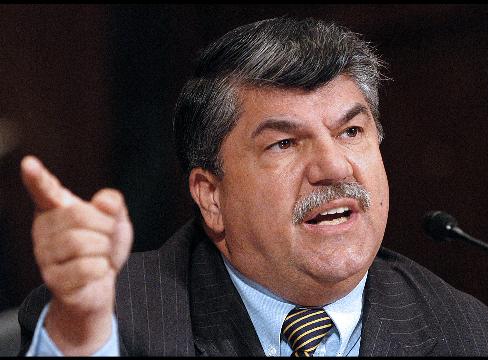When Senator Evan Bayh (D-IN) announced that he would not seek re-election this fall, he contended that “Congress is not operating as it should.” He lamented that partisanship and ideology have so pervaded Congress that “the people’s business is not being done.” Bayh cited the recent scuttling of a proposal to create a commission on federal spending, and the handling of a jobs bill. In short, Congress is no longer a properly functioning legislative institution.

Woodrow Wilson’s 1885 book Congressional Government is cited by virtually every scholar as seminal study of that institution. In it Wilson contends that the problem with Congress is that it is too preoccupied with legislating; the most important function of a democratic legislature is debate. Congress must debate, so that the people might receive “instruction and guidance in political affairs.” Legislators must constantly and publicly articulate their positions and attack those of their opponents. The New Republic co-founder Herbert Croly concurs, maintaining that Congress be transformed into “a parliament in the old sense of the word – a talking body, a battleground of opinion.”
The actual business of legislating would be handled by administrative agencies, which Congress would empower to devise and implement the means necessary to accomplish socially desirable ends. Croly observes that “social legislation is coming more and more to demand results rather than prescribe means.” With this understanding, Congress has been delegating legislative power for decades. Confronted with growing public concern over air pollution, Congress created the Environmental Protection Agency to implement regulations to clean the environment. The response of both parties and the White House to spiraling budget deficits has been to propose the creation of a commission to balance the federal budget. Over time, as political scientist Morris Fiorina has argued, congressmen have come to realize that delegating is electorally profitable. Congress earns credit for supporting environmental protection, but public blame for the burdensome rules necessary to achieve clean air is shifted to the EPA.
Freed from the arduous business of legislating, congressmen are able to focus upon debate. Debate, however, devolves into little more than posturing and maneuvering. Members have an incentive to take and hold extreme positions favored by core constituencies, demonize the opposition in order to score political points, and employ overheated rhetoric in support of both. These tactics mobilize supporters and win elections, but are not conducive to effective legislating. Deliberation is not a skill valued by the progressive understanding of a legislature. Such a legislature does not attract members of a deliberative temperament; once there, they have little opportunity for real legislating. The self-interest of legislators is effectively divorced from the exercise of legislative power.
When Congress is confronted with a situation, wherein it must actually legislate, it is exposed as being unable to perform its core function. In session after session, Congress is unable to pass a balanced budget in a timely manner. Health care reform has degenerated into a series of backroom deals and a summit, which wass little more than a staged photo opportunity. Congressmen, moreover, are unwilling to make decisions that may endanger their prospects for re-election, as they are conditioned to delegate those decisions. The recently enacted health care legislation assigns to administrators the task of making the decisions that will shape American health care. Unable to deliberate, and unwilling to take responsibility for making policy decisions, congressmen are reduced to engaging in fruitless partisan warfare and public grandstanding.
To solve the problem, it is imperative to restore Congress as a legislative institution. Congress must deliberate about public policy problems and enact laws that make tough choices about what policies the nation ought to follow. As stated in The Federalist, they must make “rules for the regulation of society”, rather than merely creating and empowering agencies to do their dirty work.
When Congress legislates, it is far easier to judge the body by its work, and the members by the real decisions they make. Legislative elections, in turn, would revolve around substantive policy alternatives, not position-taking. Congressmen would again have an incentive to become better legislators. Laws and lawmakers would be more responsive to public opinion and more responsible for the general welfare. In short, the solution is to eschew the progressive model of a legislature in favor of that embodied in the Constitution.
This transformation must come from within: the President cannot make the necessary changes, and when the courts have intervened on behalf of constitutional government (such as when they overturned the legislative veto), Congress has simply ignored them. The self-interest of legislators must be reconnected to deliberative policy-making. This is turn will only happen when public opinion understands the progressive nature of Congress’ dysfunction and returns to the constitutionalism of the Framers.
Senator Bayh says that Congress needs “real reform”, but a century of progressive reform has left that institution distracted and ineffectual. If Congress wants to do the people’s business, what it really needs is a healthy measure of unreform.
COMMENTS
Please let us know if you're having issues with commenting.